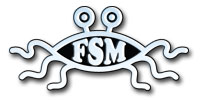För några dagar sen så spelades dokumentären ”Vad är det för fel med grekerna” upp i SVT (själva dokumentären har jag kommenterat tidigare). När man läser kommentarer på A.Paschalidous blogg angående hennes dokumentär så kunde man se vissa undra om hon var partisk för att hon var grek. Att hon kanske överdriver lite.
Här kommer liknande reflektioner från en annan källa, en artikel från BBC, som även den pekar mot den grekiska krisens mörkaste baksida.
” Greece’s financial crisis has made some families so desperate they are giving up the most precious thing of all – their children.”
Låt mig påpeka att det är den värsta tabun någonsin för en grek att ge upp sitt barn. Familjen är vårat allt. Även om man bråkar, skriker och gormar… så ställer man upp. Jag har till exempel alltid vetat att mina föräldrar skulle kunna göra vad som helst för att hjälpa mig när det behövs. Min far skulle kunna ge mig hans sista krona utan tanke på hur han skulle överleva ifall jag behövde den. Eller faktiskt bad om den, oavsett om jag behövde den eller ej. För så resonerar man.
När man i Grekland lämnar sitt barn vid prästens dörr, eller vid SOS barnbyars ingång, så har man redan dränerat vartenda liten resurs man har, och har nått desperationens botten.
För någon som vuxit upp i ett land som Sverige så kan det här te sig märkligt… men i Grekland har man en ytterst liten socialtjänst. Socialbidrag har aldrig varit en norm, ens för dem i stort behov av det. Endast ett fåtal, gamlingar utan barn, narkotikaberoende och totalt utstötta har fått någon form av minimalt socialbidrag. För resten av oss har våran motsvarighet till ”socialen” varigt familjen och bekantskapskretsen. (Barn har lagstadgad skyldighet att ta hand om deras föräldrar när de blir gamla till exempel)
Både Pascalidou och BBC tar upp det tyngsta fallen. I storstaden där man kanske inte har familj som stöd. Eller de där familjen och bekantskapskretsen är lika illa däran som barnens föräldrar. Men dessa är toppen av isberget. Tro mig… För varje barn som lämnats hos en präst eller hos SOS barnbyar så finns flera som skickats till far/mor-föräldrar på landsbygden. Eller där mor och farföräldrar medvetet ger allt de har och lever under svältgränsen så att barnbarnen inte ska drabbas alltför hårt.
Som en tjej sa i Grekisk TV för ett par dagar sen: ”Krisen har påmint oss om det viktiga i livet, medmänsklighet.”
Men det är till ett högt pris…
Länkar till andra som skrivit om ämnet: fruntimmersbloggen.se, Metro – vad är det för fel på grekerna, vidsynt.wordpress.com, Steve reflekterar, Danne Nordling,
In English:
What’s wrong with the Greeks … continued …
A few days ago a documentary with the title “What’s wrong with the greeks?” was aired in the swedish television. (For a cemmentary on the documentary itself, in swedish though, see my earlier post here) While reading the comments on A. Paschalidous blog about the above mentioned documentary, many pondered whether she might be biased because she was Greek. That she might be exaggerating a little.
Here’s similar reflection, from anothers source – BBC, on the darkest side of the greek crisis.
” Greece’s financial crisis has made some families so desperate they are giving up the most precious thing of all – their children.”
Let me point out that it is the worst taboo ever for a Greek to give up her/his child. The family is our everything. Even if you argue, scream and rant … it’s the way our society is set up. For example I have always known that my parents would do anything to help me when/if needed. My father would give me his last dollar, without a second thought of how he’d survive himself in case I needed it. Or actually just asked for it, whether I needed it or not. That’s how it is… that’s how he (and most Greeks) reason.
For greek parents to leaving their child at the priest’s door, or at the SOS Children’s Villages, means they have already drained every little resources they have, and have reached the bottom of despair.
For someone who grew up in a country like Sweden, this may seem strange … but Greece has a minimal amount social services. Social assistance has never been a norm, even for those in great need of it. Only a few, old people without children, drug addicts and extreemely poor has been receiving some kind of minimal social assistance. For the rest of us have our equivalent of the “social services” has been our family and acquaintances. (Children have a legal duty to take care of their parents in old age her, for example – the law is rarely invoked, but it shows the way family is perceived)
Both Pascalidou and BBC deals with the hardest cases. In the big city where you may not have family support. Or where the family and acquaintances is in just as a bad shape as the children’s parents. But these are the tip of the iceberg. Believe me … For every child who’s left with a priest or at SOS Children’s Villages, there are several that have been sent to the grandparents in the countryside. Or where grandparents knowingly give everything they have and are living on as little as possible, so that their grandchildren will not be hit too hard.
As one girl said in Greek TV for a couple days ago: “The crisis has reminded us of what is important in life, humanity.”
But it is at a high price …







